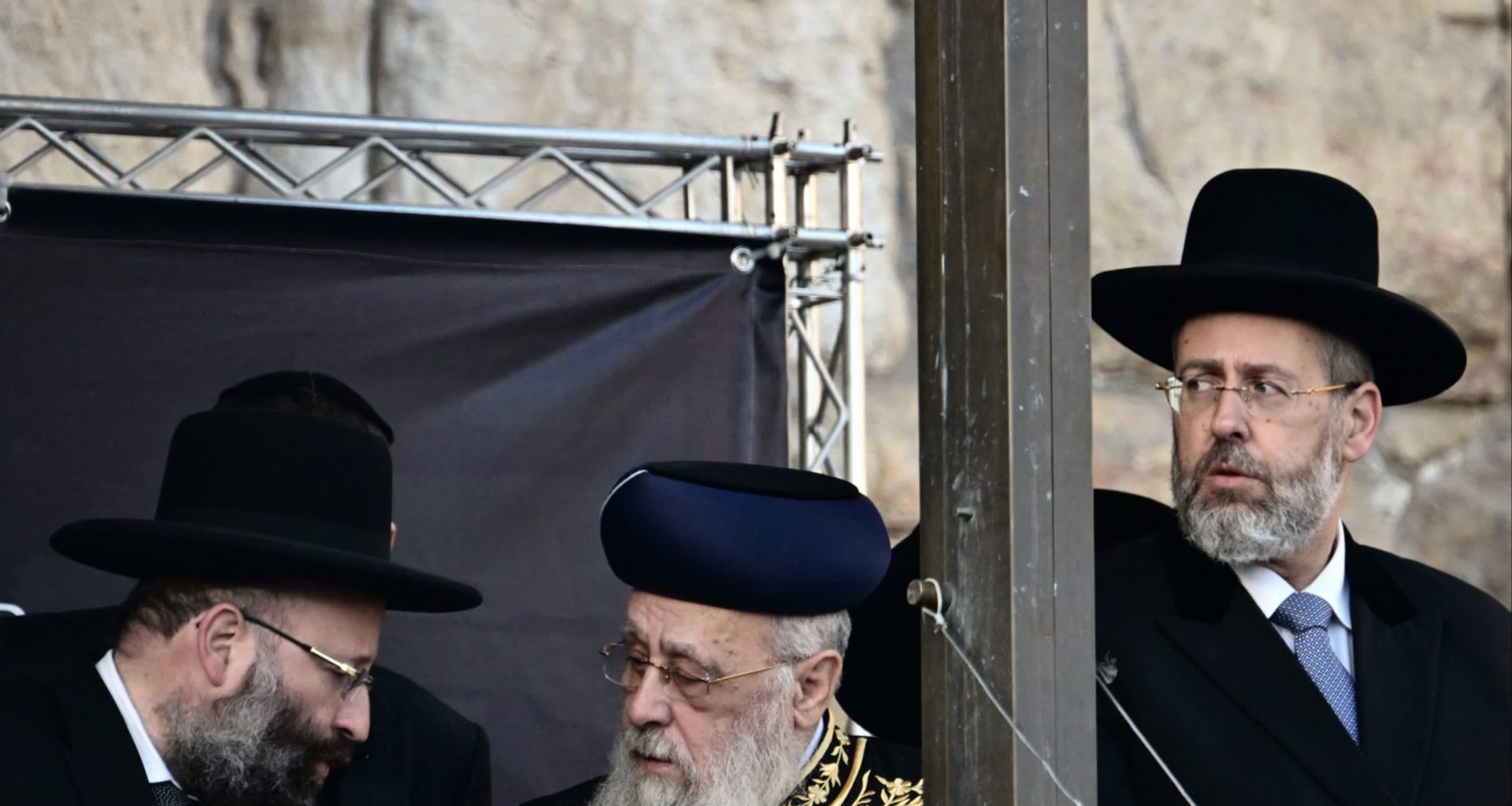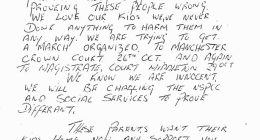Yitzhak Yosef’s weekly sermons rarely make waves outside the cloistered world of Israel’s fervently religious ultraorthodox community. But when the chief Sephardic rabbi addressed the faithful earlier this month, he touched off a political firestorm.
Yosef said ultraorthodox Jews, known as Haredim, would leave the country if the government began to conscript them for the army. The sermon added fuel to an escalating debate about a decades-old exemption from military service for religious students that has opened rifts in Benjamin Netanyahu’s right-wing coalition.
“If they force us to go to the army, we’ll all move abroad,” said Yosef, who wields significant influence within the ultraorthodox Shas party, the second biggest party in the coalition. “All these secular people don’t understand that without [religious schools], the army would not be successful . . . The soldiers only succeed thanks to those learning Torah.”

Even before the war with Hamas erupted last year, the almost complete absence from the military of the fast-growing Haredi community — who make up an eighth of Israel’s population and are expected to account for a quarter by 2050 — had long been a point of contention among the rest of Jewish Israeli society, where at least 24 months of obligatory military service is a rite of passage.
But with Israel fighting its longest war since its foundation in 1948, Yosef’s comments sparked criticism from allies and opponents alike, and laid bare the simmering tensions over the issue in Netanyahu’s coalition, which contains both ultraorthodox parties such as Shas and hawkish ex-soldiers determined to abolish the exemption.
“The government has a relatively stable coalition of 64 [seats in Israel’s 120-seat Knesset], and none of its members has an immediate interest in bringing it down, because there is nothing positive waiting for them [in an election],” said Yohanan Plesner, head of the Israel Democracy Institute. “But if there is one issue that can bring down the government, this is it.”
The arrangement allowing young Haredim to avoid conscription if they attend a yeshiva, or religious school, dates back to a compromise thrashed out under the nation’s founder, David Ben Gurion, in 1948, which exempted 400 young ultraorthodox men from military service.
Over the years, the compromise has become increasingly controversial as the number of Haredim affected has soared, thanks to a 1977 decision to expand the exemption, and the growth of the ultraorthodox population, whose families, on average, have seven children each.
In 2017, Israel’s top court found the arrangement unconstitutional. Now, after years of failed attempts to find a solution, the court has ordered the government to explain by March 27 why the exemption should not be scrapped by the end of the month, raising the prospect that the yeshiva students could be conscripted from April onwards.
For many Haredim, that prospect represents a fundamental threat to their way of life. Over the past 75 years, they have built a world far removed from Israel’s mainstream, living in their own districts, studying in their own schools, and abiding by values that include strict rules against the mixing of men and women, and tougher kosher requirements than less religious Jews.

“We understand that we are part of a bigger picture, and that we should contribute too because we are also benefiting from it. But the army is a red line,” said David Menahem, a Shas activist.
“The army would like men and women to serve together. But we think a married man and a married woman serving in a tank together for 12 hours — it’s not correct. It’s forbidden according to the Torah.”
Analysts say that while the military will need Haredim in the longer term, in the short term, drafting Haredi youths would have little impact on Israel’s military capabilities. The time required for training means they would be unlikely to play significant combat roles in the current conflict, even if it escalated into a broader and more protracted fight with the powerful Lebanese militant group Hizbollah.
“We need to expand the draft. But there are several ways of doing it,” said Manuel Trajtenberg, head of Israel’s Institute for National Security Studies. “Yes, we need more soldiers, and [the Haredim] can contribute their share. But is [drafting them] critical? No.”
But for many secular Israelis, the military exemption is a lightning rod for broader resentment about the position the Haredim enjoy in Israeli society, with generous subsidies allowing about half their men to devote their lives to religious study rather than joining the labour force.
The government last year increased funding for yeshivas to 1.7bn shekels ($467mn), up from 1.2bn shekels the year before, and opposition leader Yair Lapid hit back at Yosef’s comments by pointing out that he received a state salary. “His words are a disgrace and insult to soldiers who sacrifice their lives for the defence of the country,” Lapid wrote on X.
That sense of unfairness has only been compounded by the war, which has prompted the military to seek to lengthen the time conscripts serve and expand the duties Israelis must fulfil as reservists once they have finished full-time service.
“This is one of the biggest . . . open wounds in Israeli society, because it relates to the highly sensitive question of who is prepared to risk their life to defend this threatened state,” said Plesner. “And it’s an issue that for decades the political system has been unable to resolve.”
Despite the hardline positions staked out by Haredi leaders such as Yosef, some ultraorthodox think a compromise could be reached.
Bezalel Cohen, an ultraorthodox rabbi, said one of the mistakes Israeli leaders had made was trying to corral even the most conservative members of Haredi society into accepting the draft. Instead, he argued, the government should focus on the smaller, more modern segment of the community that might be open to change.

“Everybody who understands, realises that you need to deal with the 40 per cent and leave the 60 per cent alone,” he said. “But in the end, what [the politicians] do is always the opposite.”
Moshe Roth, an MP from the ultraorthodox United Torah Judaism party, said the military could deal with its manpower needs without drafting yeshiva students. But he conceded that a compromise whereby the most dedicated students continued their studies, while others were conscripted, was conceivable, as long as the army also ensured that those drafted could maintain their Haredi way of life.
“When it comes down to the bottom line of being in opposition or being in coalition, then everybody will fall in line,” he said. “Even though it’s highly uncomfortable, politically speaking, there will be some kind of compromise where they will ask the court for some kind of extension, or there will be some kind of committee set up.”
But others question whether playing for time will work again, particularly if the Supreme Court were to order the government to suspend subsidies for yeshiva students until legislation regulating conscription rules is passed.
“If that were to happen, it would escalate the political crisis because it would mean stalling is no longer cost-free,” said Plesner.
“It would mean that every month of schooling is a month where the ultraorthodox parties are not getting the payments they are used to for their institutions. And this is something they will not accept.”
Read More: World News | Entertainment News | Celeb News
FT









